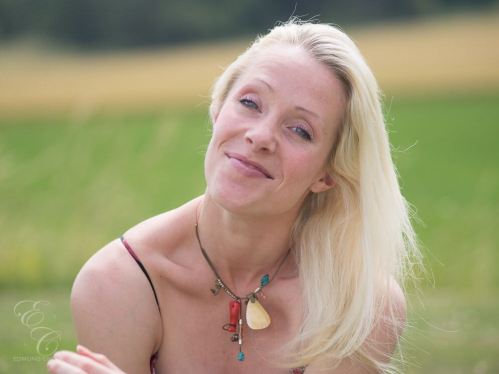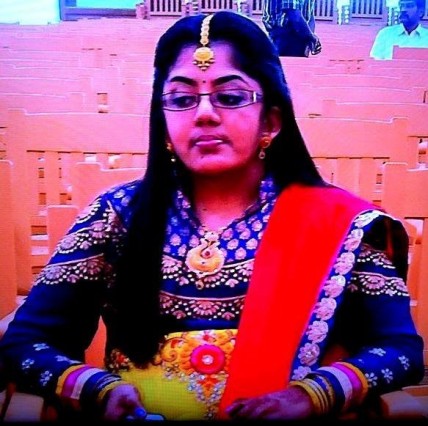Just before that EU Referendum in June, BBC one aired a controversial documentary entitled Last Whites of the East End. Yes really, they did.
Six months on and heavily ensconced in a post-Brexit Britain, two writers from very different ethnic backgrounds attended a two-hour lecture given as part of Kingston University’s four-day Race and Ethics Matter series. The similarly thorny title? “White Working Class. Does it Exist?”
These are their thoughts.
Becky Scarrott, 37, was born in London’s East End, studied in Farringdon and has lived in West London ever since.

When I was told the title of this lecture, my first thought was “Yes. Heck yes. All of the yes.”
I am borne of it. My mum was a teacher, my dad the uber-typical Gloucester white van man, co-owner of a building firm. My sister and I went to state school in West London; my parents’ eventual nesting place after spells in Cyprus, Bahrain, and the glorious East End where I was born. Oh and yes, my dad has done a bit in prison. I’m about as white, working class and British as it gets.
I currently work in retail. On Black Friday, between 2pm and 6pm, we took several thousand predominantly white, working-class female pound notes. Women who can’t afford £65 for a top but can be tempted for £39? Well, them.
Today, I’m surrounded mostly by psychology students. I wonder why. This issue is so complex, acrid and important in post-Brexit Britain.
Most of our lecture does indeed centre around events since June. I remember two days before the referendum, Nigel Farage parked his big, open-top UKIP bus outside the shop I worked in. Nobody seemed to mind.
It has always been my belief that a vote for Brexit was thinly-veiled racism. No? At its very molten, angry core, I see a vote to Leave as a demand to return to Ye Olde Britain: the proper, Aryan elite where foreigners can cock off ‘home’ so that we can rebuild our infiltrated, defiled Green and Pleasant Land.
Sunderland is mentioned. It was of course the poster-boy for Brexit, and the hometown of our lecturer Emma Jackson, a sociologist at Goldsmiths. The North-South divide, with the north as a ‘barren wasteland’ is widely debunked as a media phenomenon created to spark debate. She mentions postcolonial melancholia: the sadness amongst millennial working classes who find themselves devoid of old, empirical businesses like the Shipyards of Sunderland and how one Leave voter hoped that, as a result of her vote, ‘“maybe the steel mills would come back.”
Oh, that life were so simple.
The tainting of the working class as the racist backbone of Brexit, however, is troublesome, and not the whole picture. In fact, as Emma proves, it is ultimately a false picture. Actually, 52% of Brexiteers lived in the south of England, and 59% of those voters were banded in the middle classes. These voters were perhaps less visible, but their vote counted, nonetheless.
As the debate continues I’m happy we’re challenging the notion of the white working classes — which have been derided for lack of taste since words like ‘chav’ and ‘mockney’ arrived in our vernacular — with the chief example being Grayson Perry’s series of programmes on social classes in 2011, All in the Best Possible Taste.
Grayson, in one episode, dresses up like a working class woman of Sunderland and seeks, he says, to find out “what is behind her choices.” The flaw in all of this to my mind is that whilst it’s all very funny to see what her tastes are, there is no notion of power here; of governmental neglect, housing crises — anything to complete the picture.
I cringe as a Canadian lady confides that she arrived in England in 2008, and watched all of the BBC 2 documentary series, White (put together to argue whether the white working-class was becoming invisible) in utter shock. And here, I’d been disgusted to learn from BBC iPlayer that, 37 years ago in 1979 — the year I was born — a Blacks vs Whites professional football match was held, and that bananas were thrown at black players. But this was 2008? Yes. I know.
Thank heavens one white working-class woman asks the question I didn’t at that point have the wherewithal to ask.
“I always considered the white working class to be about solidarity and inclusiveness. I thought we were mostly left-leaning and anti-elitist. Can you pinpoint when this change happened, because I’m struggling?”
I could’ve hugged her. It seems nobody can unpick this in the two hours that we have.
From a very personal perspective, on that morning in June, I put all politics aside and looked into my white, working class British soul to ask if it felt any sense of entitlement; if being born in Britain meant I could (or should) potentially exclude my Polish, Spanish and South African colleagues from the country in which they have built their lives. My soul, of course, screamed, “No.”
I’m glad it wasn’t alone.
Sridevi Viswanathan, 22, is from Coimbatore in the South Indian state of Tamil Nadu. She completed her undergraduate degree in Chennai. Sri came to London in September.

Being a Masters student from India, I could wholeheartedly relate the lecture today to the caste system I saw for all my years at home. Fortunately I have never been a victim of it, but it hurts me every time I see someone being discriminated against because of their caste, race or ethnicity.
Today in the lecture a teacher shared his experience of being discriminated against and shamed for being black; how he went to the houses of his students to prove himself only to see a big board saying, “No Blacks. No Jews” outside one of his students’ houses. It kind of shook me up and I was immediately reminded of the racist attacks made by Indians in Australia, which I consider appalling. It took me some time to get over that issue. I mean, just because a person is black or doesn’t belong to your race, it doesn’t give you the right to attack them, does it?
There was a person from a part of Essex who said class-based systems still exists in the south of England, and I felt for him. I felt guilty for people in my country who have been denied their chance at a better future because of their class. Some students who study extremely well and score good marks are denied entry to the more prestigious institutions just because of their caste. I’m a Chettiyar and that is a respectable caste. Maybe just because I am from a better class I am where I am today, at the cost of them losing their future?
The lecture was mostly about the white working class and incidents post-Brexit. As an Indian, I strongly feel my county is creating a huge impact all over the world and there are so many Indian companies in the UK giving work to the people here. Does Brexit mean everybody else should pack their bags and fly off back to their country? My heart skipped a beat then. I thought of my country where so many people from different backgrounds or even from other countries make their lives in India. What if they were not given the reception they wanted and asked to go back to their homes?
Our Lecturer Emma Jackson, a sociologist from Goldsmiths, spoke about her home city of Sunderland and the North-South divide. Being a Sociologist she rightly mentioned postcolonial melancholia: of working classes feeling deprived of traditional work in shipyards and how the vote to leave gave them hope of going back to those older lives.
The feeling is the same with the working class people of India. So many old street shops are being killed by luxurious malls. They all wish they could get back to the sweet old days. I know small street shops in Chennai that sold books at cheap prices and were forced to close because of the advent of these rich, elite shops. What’s funny here is, even though they are working class, they’re just working in a more dignified shop — nothing else.
“We should find out how it is in different places, and I am trying my best to do it, Jackson said.
It struck a chord. I hope she continues.
There were also discussions about voting patterns across the UK for Brexit. As I was thinking about my country, I remembered where I studied. There is an area in Chennai where only working class people live and it has always been a stronghold for the current opposition party. Working class people play a major role in the chief minister elections in my state.
As good samaritans we should all fight against this class system and be united as human beings. Everybody with me?

Great article really good comparison between India and the UK – well written too. Thanks gals
LikeLike
Thank you for reading, Jen!
LikeLike